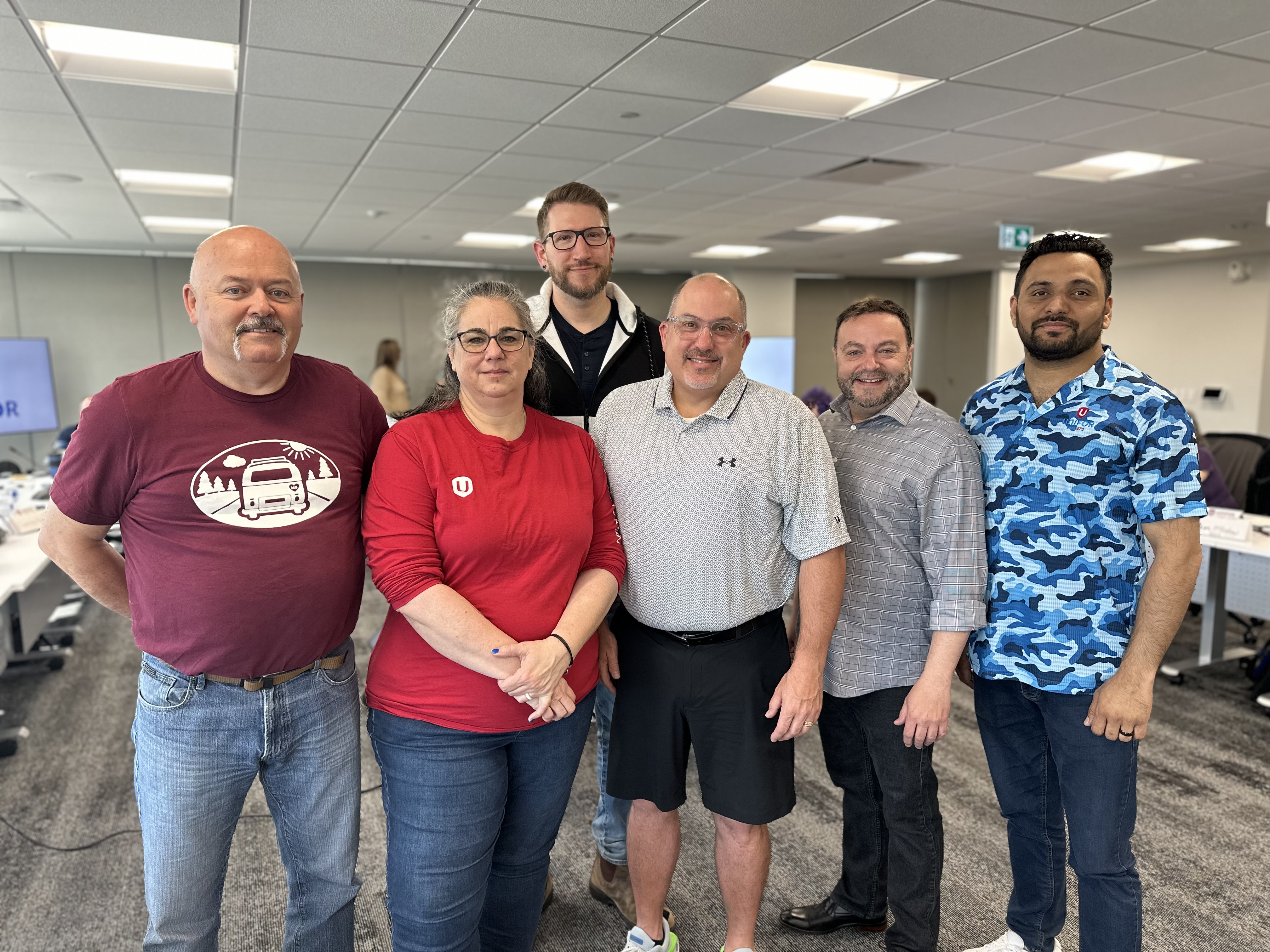
Share
Mental health was the front and centre topic at the Education Technical Office and Professional (ETOP) Council on May 29 and 30 at Unifor’s national office in Toronto.
“We have found in the ETOP sector it’s really had a huge impact for all of our members,” said ETOP Council Chair Emily Heikoop. “We need to reduce the stigma and change how we talk about mental health in the workplace, both in terms of representing our members and taking care of our union reps who are taking care of them.”
The group containing over 30 delegates from across the country from roughly 10 locals, split into separate SafeTalk sessions, to receive suicide awareness and prevention training on the first day.
Paul Nugent, a facilitator for the SafeTalk program run by the Canadian Mental Health Association, said advocacy and awareness of suicide prevention is important for all workplaces, particularly after the population struggled with stressors during and post-pandemic and now, as we’re in an affordability crisis.
“Because of the taboo, stigma and shame associated with suicide, there isn’t a lot of training and awareness being brought about,” he said.
“The core issue is there are deeper layers challenges and activators in our communities that lend themselves to suicidalities. If we can address the core issues, then we can mitigate the risk of people ending their life.”
The Mental Health Commission of Canada led a session on The Working Mind on the second day of the council, an evidence-based course designed to shift the way you think, feel and act regarding mental health, by increasing awareness, reducing stigma and other barriers to care in the workplace and bringing forth those conversations.
“We spend so much time in the workplace, that’s where we see mental health injuries can arise and be caused by the workplace itself,” said Heikoop. “So, understanding the interplay of mental health and the work we do is important.”
Unifor National Secretary-Treasurer Len Poirier addressed the group and congratulated the council on bargaining gains made by locals and members in the sector, including the end of the GreenShield strike in Windsor and Toronto last month.
“We’ve made some historic gains,” he said. “I recognize that whenever we go into bargaining, there’s always a potential for a strike and our members down at Locals 240 and 673 know exactly the struggles, firsthand.”
Ontario Regional Director Samia Hashi spoke about Unifor joining the Ontario Health Coalition’s rally at Queen’s Park that day, upcoming challenges in various sectors in the province, and recognizing retired workers' work within the union and in the political realm.
“I understand, in this sector, the challenges coming out of the pandemic, in terms of how the world of work in ETOP has changed and also, the future of work, including technological change and the advancement of AI,” she said.
“Those are the things we have to keep front in mind and we’re here to support you any way we can.”
The council also heard from different Unifor departments, including Communications, and how they operate and how they can access and mobilize those resources during bargaining and strikes. Information about mental health education from the union’s Paid Education Leave program and work-from-home language resources from the Research department were also provided.
The executive voted to donate $500 to the MDA Space strike in Brampton, Ont., which has been ongoing since April 8.







